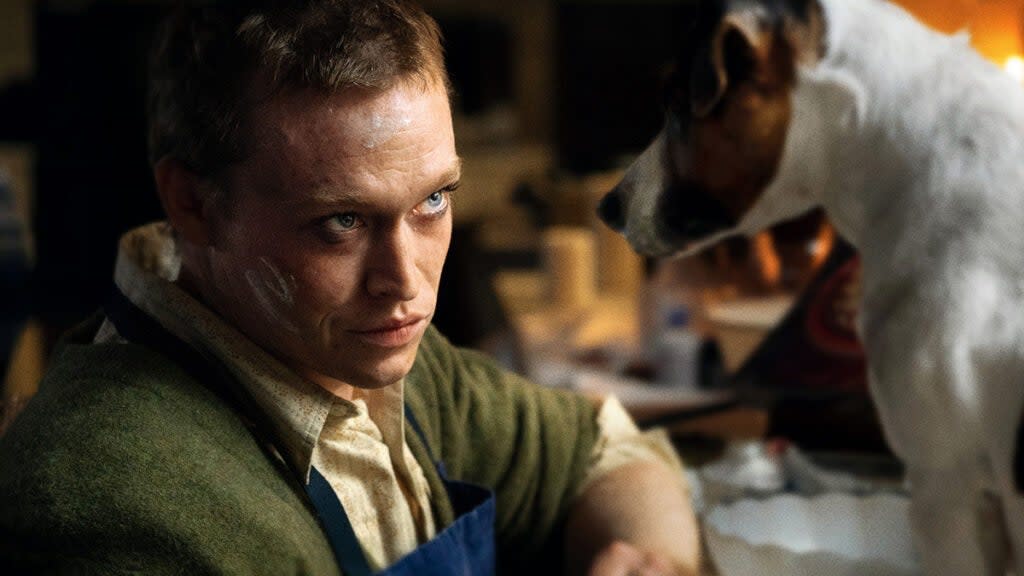‘Dogman’ Review: Controversial Director Luc Besson Lets His Freak Flag Fly

Too bombastic for the French establishment and too idiosyncratic to ever go full Hollywood, Luc Besson once charted an impressive middle ground on the international scene.
At his 1990s peak, the action auteur riffed and danced around the blockbuster formula, delivering genre potboilers so perverse (in the case of 1994’s “Leon: The Professional”) or uncanny (as with 1997’s “The Fifth Element”) as to stand noticeably apart from your standard studio offering and, in the process, Besson built for himself an empire. Beset with legal and financial problems the French director’s star has dimmed in the past decade, but his hunger clearly has not.
Which brings us to “Dogman.” Premiering in competition at the Venice Film Festival, the project marks a splashy comeback of sorts for the beleaguered filmmaker, just recently acquitted of sexual assault charges, and an impassioned argument that his erstwhile model still has some juice. That could very well be the case, but I doubt this particular proof-of-concept will have the intended effect.
Which isn’t to fully denigrate this messy (and fitfully inspired) film that plays as a wider response to Hollywood’s comic-book boom and a more pointed riff on “Joker,” in particular. Lifting from Venice’s 2019 Golden Lion winner in the same way that Todd Philips cribbed from Martin Scorsese, “Dogman” plays as a reflection of a reflection, a fun-house mirror pre-boot divorced from any existing IP. That gives Besson free reign to let his freak flag fly, coming up with a singularly unhinged figure – a wheelchair-using, gender-bending crime-lord with a psychic control of canines – and reverse-engineering an origin story around him.
Offering star Caleb Landry Jones another sterling entry in his cannon of Strange Little Guys, Dogman (well, he mostly goes by Doug) turns up on the side of the road, bleary, blood-soaked and besequined as Marilyn Monroe, and soon enough it falls to psychologist Evelyn (Jojo T. Gibbs) to peel off his many layers. Moving from this psychological interrogation framing device into a series of increasingly baroque flashbacks, Besson imagines his own American gothic, following his hero’s improbable path from an abusive home, to an extended imprisonment in a dog kennel, to a stint in foster-care and his eventual blossoming in a New Jersey drag cabaret.
None of these discrete elements have any right to coalesce – and, indeed, they don’t – but one can take a certain pleasure in seeing a filmmaker’s adolescent brain free-associate so wildly. Beyond the “Joker” framework, Besson seems particularly fixated on the Dark Knight mythology, staging Doug’s supernatural emergence as a direct visual wink to Tim Burton’s “Batman Returns” once a pack of hounds coalesce around a mortally wounded young man, healing him while offering a little something extra. (Hell, the film’s very title seems the product of a silly substitution game: Cat…woman meet Dog…man.)
But so what if the film’s nothing but a thin pretext for bizarre set-pieces when the set-pieces are so fun? There may be no rhyme or reason for Jones’ three diva performances but for the fact that he fills the gowns of Edith Piaf, Marlene Dietrich and Dame Marilyn so well, but again, so what? Once you accept this grab-bag of half-formed ideas wouldn’t you prefer to witness an ornately staged home-invasion jewel heist performed by a pack of very good dogs?
If “Dogman” has very little to say, it coasts on style amiably enough, showcasing another gonzo turn from Caleb Landry Jones, and presaging Luc Besson’s return. For good or ill, this old mutt still has some bite.
The post ‘Dogman’ Review: Controversial Director Luc Besson Lets His Freak Flag Fly appeared first on TheWrap.


